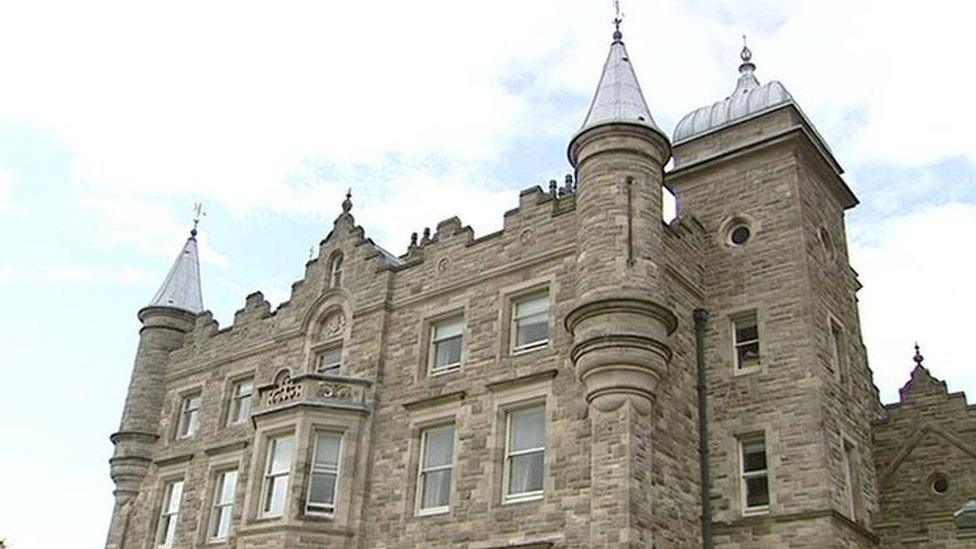Covid-19: Live music and outdoor gatherings rule changes delayed
- Published

A planned easing of Covid-19 restrictions in Northern Ireland has been pushed back to July 5.
Last week, the NI Executive outlined a number of indicative dates, external, which were due to be ratified on Thursday.
The relaxation of rules would have included resumption of live music along with removing the cap on outdoor gatherings and other measures.
Meanwhile the Department of Health has said a new "vaccine passport" should be available from July.
The delay in relaxing the latest tranche of rules is thought to be due to concerns around the Delta variant.
The number of Delta variant Covid cases has more than doubled in Northern Ireland over the past week.
Enhanced Covid-19 testing is to begin in Ballymoney, County Antrim, and Omagh, County Tyrone.
Among the moves that could have been made were: allowances for 10 people from two households to meet indoors; live music to return at venues that sell food or drink; close-contact services, such as hairdressers and beauty salons, allowed to operate without appointments.
The executive will review the situation on 1 July with a view to making changes on 5 July.
Hospitality Ulster had urged ministers to put a plan in place to follow through on Executive commitments that "that would allow our pubs, music venues and musicians to begin earning a living again".
"The value of live music to the hospitality industry cannot be underestimated," said Chief Executive Colin Neill.
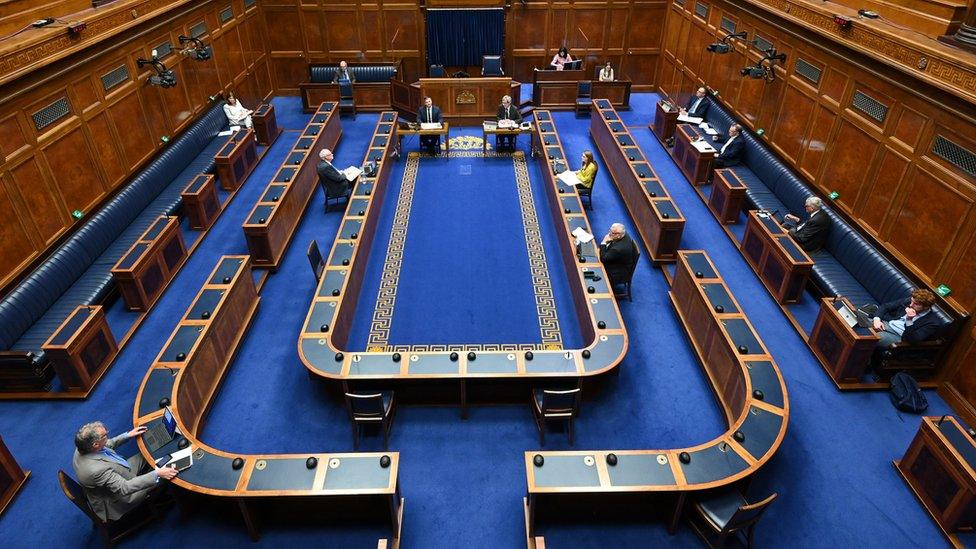
Members of the Committees for the Executive Office, Economy and Finance met in the Assembly chamber on Wednesday
"This current episode of political unrest is hugely unsettling for the sector.
"We really are only half open, with restrictions still in place across the sector including live music, the cap on guests per table and social distancing limiting business sustainability."
Vaccination document for travellers
A paper-based document showing proof of vaccination should be available next month, according to health officials.
The department said the aim of providing paper-based proof was to reduce delays experienced by travellers.
A format has now been agreed by the devolved UK nations for official certification letters, which will require specialist printing services, incorporating data protection and counterfeit prevention.
A spokesperson said the introduction of a digital certification later in the summer would "also support evidencing of negative PCR COVID tests, as an alternative to vaccination."

Vaccination passports may enable people to travel more in future
People in Northern Ireland can currently travel abroad under the traffic lights system, and they must obey any isolation guidance on their return.
The World Health Organisation (WHO) and European Union have published guidance on how solutions to prove vaccination status should be implemented, enabling an "international trust framework".
Many countries have yet to determine what their vaccine documentation requirements will be.
People in England are able to use the NHS England app as a "vaccine passport", and a number of countries across Europe are using an EU Digital Certificate to prove vaccination status and allow movement between nations.
What was due to be rubber-stamped by the executive on Thursday?
Ministers had proposed that from Monday 21 June:
Live music in smaller indoor venues would be permitted in both licensed and unlicensed premises which serve food and drink, but only at "background or ambient levels"
Live music in larger indoor venues, such as a hotel function room or conference suite, would be permitted and would not have to be restricted to background noise levels
Live music in concert venue and theatres would be allowed without the volume restrictions faced by smaller indoor venues, but entry must be by ticket only and seating must be allocated
Live music in outdoor venues could resume without the volume restrictions outlined above
Dancing could resume in outdoor venues for members of the public, but in all indoor venues it would be permitted only as part of a performance - so no dancing by customers or the audience
Social distancing of at least 1m (3.2ft) would be "required" when seating customers at indoor live music events, and 1m distancing is also "advised" for all outdoor events
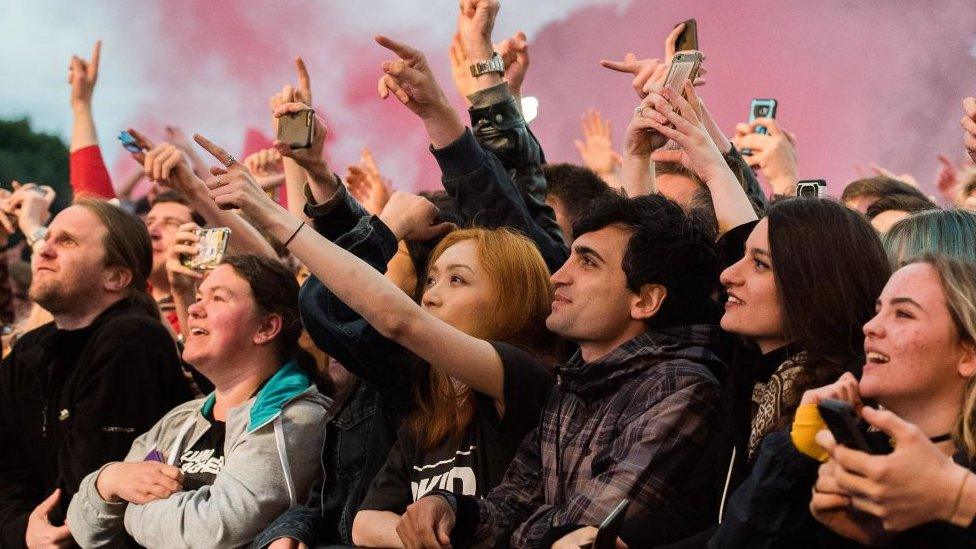
Outdoor gatherings in excess of 30 people would be permitted from 21 June, but would require a risk assessment to be completed by the organisers
Close contact services such as hairdressers and beauticians would be able to serve customers who call in without an appointment, but they must retain their other existing safety measures
Indoor family and friend gatherings would be restricted to 10 people from no more than two households (that limit does not include children under 12). But if there are 10 people in one of the two households, then the limit increases, meaning up to 15 people can gather indoors
Outdoor family and friend gatherings such as in a private garden would continue to be restricted to 15 people (not including children aged 12 and under) but attendees could be from an unlimited number of households, whereas currently only three households can mix
Household bubbles - with the planned further easing of limits on gatherings in domestic settings, the executive has proposed to "remove the linked households/bubble provision"
Also at Thursday's meeting, executive ministers were due to ratify further changes which they proposed would take effect next month.
By Thursday, 1 July - overnight residential services for youths are due to restart, as part of the phased reopening of the summer youth services programme.
By Thursday, 22 July - the removal of all Covid-19 restrictions on live music and dancing in licensed and unlicensed premises which serve food and drink.
- Published4 June 2021

- Published2 March 2021
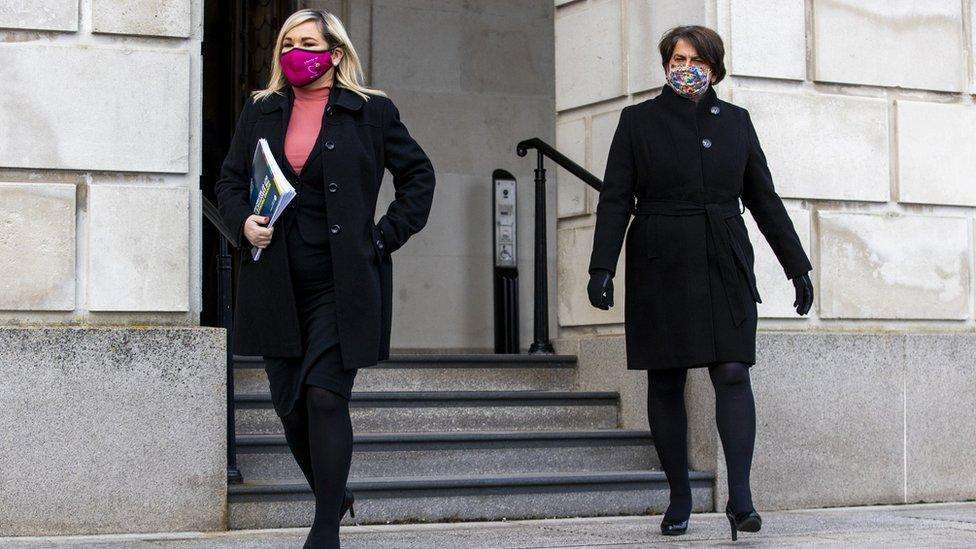
- Published24 November 2020
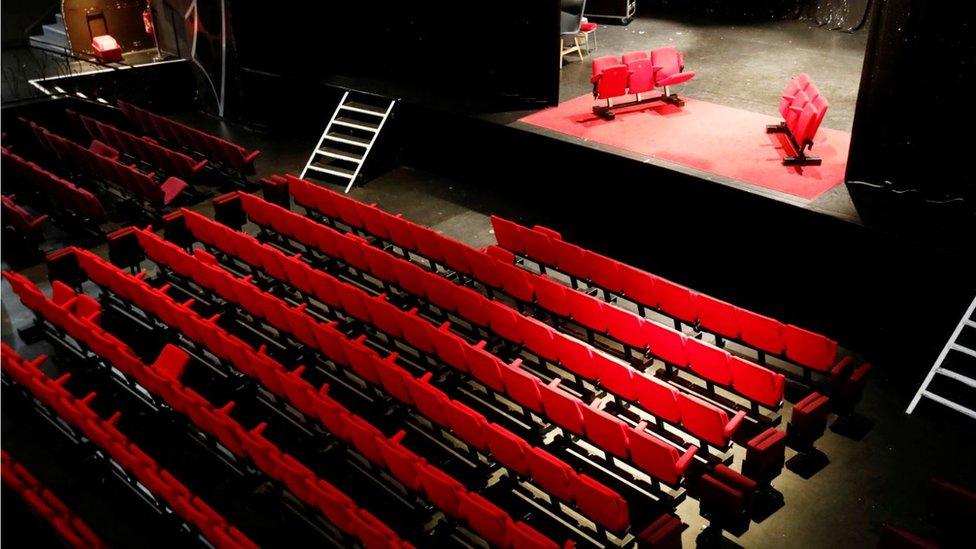
- Published17 June 2021
